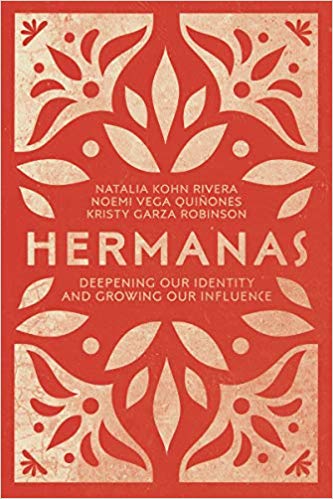
This Week on Seminary Dropout…
LIVE from the Christian Community Development Association in Dallas, Texas!
Noemi Vega Quiñones leads as the South Texas area ministry director for InterVarsity Christian Fellowship. She moved with her family from Mexico to the United States when she was five and grew up in the central coast of California. She has been an adjunct professor at Fresno Pacific University Biblical Seminary and has written for The Well and The High Calling.

God calls Latinas to lives of influence. He created his Latina daughters to partner with him, live into the incredible plans he has for each of us, and walk in his grace and strength to help change this world. But many of us have heard cultural messages that make us doubt our adequacy. We have not seen many Latina women in positions of leadership, and we need more mentors and role models. Natalia Kohn, Noemi Vega Quiñones, and Kristy Garza Robinson share their own journeys as Latinas and leaders. They find mentorship in twelve inspirational women of the Bible including Esther, Rahab, Mary, and Lydia, who navigated challenges of brokenness and suffering, being bicultural, and crossing borders. As we deepen our spiritual and ethnic identities, we grow in intimacy with God and others and become better equipped to influence others for the kingdom. The insights here will help any who seek to empower Latinas in leadership. You are not alone on this journey. Join your sisters and partner with our heavenly Father as you become the Latina leader God has called you to be.
-From the Publisher


Missio Alliance Comment Policy
The Missio Alliance Writing Collectives exist as a ministry of writing to resource theological practitioners for mission. From our Leading Voices to our regular Writing Team and those invited to publish with us as Community Voices, we are creating a space for thoughtful engagement of critical issues and questions facing the North American Church in God’s mission. This sort of thoughtful engagement is something that we seek to engender not only in our publishing, but in conversations that unfold as a result in the comment section of our articles.
Unfortunately, because of the relational distance introduced by online communication, “thoughtful engagement” and “comment sections” seldom go hand in hand. At the same time, censorship of comments by those who disagree with points made by authors, whose anger or limited perspective taints their words, or who simply feel the need to express their own opinion on a topic without any meaningful engagement with the article or comment in question can mask an important window into the true state of Christian discourse. As such, Missio Alliance sets forth the following suggestions for those who wish to engage in conversation around our writing:
1. Seek to understand the author’s intent.
If you disagree with something the an author said, consider framing your response as, “I hear you as saying _________. Am I understanding you correctly? If so, here’s why I disagree. _____________.
2. Seek to make your own voice heard.
We deeply desire and value the voice and perspective of our readers. However you may react to an article we publish or a fellow commenter, we encourage you to set forth that reaction is the most constructive way possible. Use your voice and perspective to move conversation forward rather than shut it down.
3. Share your story.
One of our favorite tenants is that “an enemy is someone whose story we haven’t heard.” Very often disagreements and rants are the result of people talking past rather than to one another. Everyone’s perspective is intimately bound up with their own stories – their contexts and experiences. We encourage you to couch your comments in whatever aspect of your own story might help others understand where you are coming from.
In view of those suggestions for shaping conversation on our site and in an effort to curate a hospitable space of open conversation, Missio Alliance may delete comments and/or ban users who show no regard for constructive engagement, especially those whose comments are easily construed as trolling, threatening, or abusive.